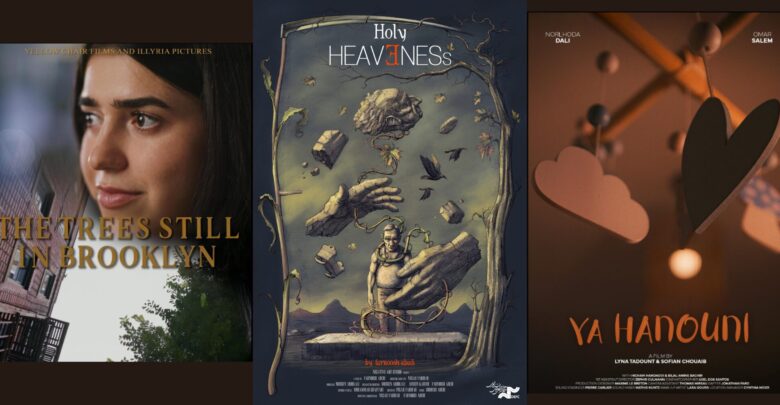Mosquers Film Reviews: ‘The Trees Still in Brooklyn,’ ‘Holy Heavêness,’ and ‘Ya Hanouni’
All three films tug at your heartstrings in beautiful, but often devastating ways.
 Supplied
SuppliedThe Mosquers Film Festival is based in Edmonton and highlights films by Muslim creatives. The 17th Mosquers held its main event on September 20, showcasing several short films.
It showed a range of films — comedic ones, serious films, documentaries, and animation.
‘The Trees Still in Brooklyn’
The Trees Still in Brooklyn, directed and written by Amina Cami, centres on a young woman re-evaluating her place as a first generation American while out for brunch with her white friends.
Comments from her friends about “oppressive” countries in the Middle East and the blatant white feminism happen as Aisha (Anda Stafa) thinks about her own identity. Much of it is Aisha questioning why she is there with her friends and thinking back to her family.
It tugs are your heartstrings, with both the feeling of being out of place and the feeling of home when Aisha thinks back to her family. The whole film is an intimate look at Aisha’s identity and her internal struggles.
It’s a visually beautiful film, with lyrical language and the perfect weaving of scenes of the uncomfortable brunch and Aisha’s family. The contrast between the camaraderie between the women in Aisha’s family and the superficiality of her friends is effective.
In the end, it was the beauty and tenderness of her family and shots of her home that really stuck with me.
‘Holy Heavêness”
The only animated short film of the main event, Holy Heavêness, written and animated by Farnoosh Abedi and Negah Fardiar, was unforgettable. The artistry of the animation, with vintage-style footage woven throughout, was striking. But the story of the weight of the loss of a loved one hit me right in the gut.
The film follows a man as he carries the weight of his dead relative with him throughout his day. The relative is always there, clinging to the man.
The film says so much without any dialogue. It really showcases the strength of the storytelling. It’s a truly heartbreaking film, but the creators told it so beautifully. The tenderness the man has for his relative and the grief that is so clear is hard to shake as a viewer.
The animation is incredibly well done, from the people to the rooms they’re in. And to not just do animation well, but tell a whole story with no words is no easy feat.
‘Ya Hanouni’
The shortest of the films, at only three minutes long, Ya Hanouni, written and directed by Lyna Tadount and Sofian Chouaib, is probably the most effective in its storytelling.
The camera angle places the viewer in a crib with a mother (Norlhada Dali) trying to put her baby to sleep. It quickly turns into a competition between the mother and father (Omar Salem) of who can get the baby to say “mama” or “baba” first. But it becomes clear that the challenge isn’t just getting the baby to sleep or getting him to say his first word. It’s that there’s a war going on.
Simple in technicality, with the camera staying in the same place, it’s incredibly effective. The film doesn’t have to show the viewer the war that’s happening, it’s made clear with the sounds of bombs dropping. But more than that, it’s not showing the grand devastation of war, but the heartbreaking reality for families and individuals.
The ending is bittersweet, but also wholly devastating. The baby survives the home being bombed, but the parents don’t. And he says his first word, “mama” right before the film ends.




